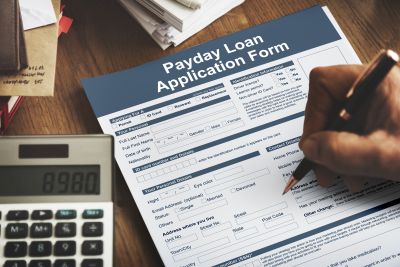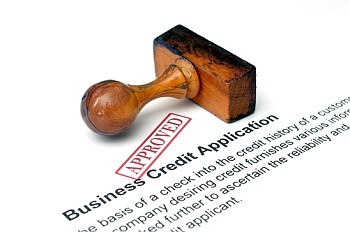4 Types Of Loans To Consider In Working With A Canberra Mortgage Broker

In working with a professional to obtain a mortgage, there will be many decisions that you will need to make.
Of course, everything will be explained in full detail making the choices much easier, but it’s wise to do some research on your own in order to ensure that you have a full understanding of each step of the process.
It is especially true when it comes to the types of loans and the term that you opt for.
There are a great number of loans at the disposal of a mortgage broker in Canberra, each has its own limitations, borrowing criteria, advantages, and downsides.
Ultimately, it will be your decision as to which one is right for your specific needs. You will need to consider the amount you’ll have for a down payment, the total you’ll need for the loan, your credit score, and other factors that the broker will assist with.
4 Types of Loans Available in Canberra To Consider For A Mortgage Loan
When employing the services of a Canberra broker, you’ll soon find that a mortgage is not merely just a mortgage.
There are a variety of types of loans that have different restrictions, upfront requirements, benefits for the borrower, and their own drawbacks. It takes careful consideration in comparing each against your situation to see which suits your needs the best.
Your broker will work with you to assess what you can afford, pull your credit score, and help you apply to the loans that you choose.
The professional will suggest which are preferred, but ultimately, it is your decision. Look through this guide to determine when you need to use a mortgage broker.
Some of the types of mortgages you might be presented to consider include:
#1 Conventional
The conventional loan is among the most common mortgages, and one most people think of with home lending. Most lenders offer these. They don’t have government backing as some choices such as VA or FHA.
For borrowers who have good credit with a score above 620 and a well-documented history of employment with a stable income, this is the perfect loan type.
A lender will likely not approve those whose “debt-to-income” ratio is greater than 36% per month. With the requirements met, the down payment can be as little as 3%, but as close to 20% is appropriate.
Below that, you’ll need to obtain PMI (“Private Mortgage”) insurance until the balance of the mortgage reaches less than 80% of the value of the home. You’ll also potentially receive a higher interest rate.
Each of these extra costs will elevate the overall cost of the mortgage making it wise to ensure that you attempt to save and pay the 20% down if you want to use a conventional loan.
#2 Government-Insured
USDA, FHA, VA, are some of the government-backed options that are more lenient with their borrowing requirement compared to the conventional mortgage choice.
- FHA: The “Federal Housing Administration” backs these in an effort to assist first-time homebuyers who typically don’t qualify for the conventional options. The criteria for these are more relaxed allowing for a lower-income/credit score.
With the FHA there is a chance mortgage insurance will be paid for the loan lifespan with higher interest rates than a conventional mortgage because the standards are less strict. Down payments can be as minimal as 3.5%.
- USDA: The “U.S. Department of Agriculture” provides mortgages for those in the middle to lower-income brackets in rural areas who are eligible. The interest rates are exceptionally lower with no down payment requirements, but there is the possibility for mortgage insurance to be paid.
- VA: The “U.S. Department of Veteran’s Affairs’ is a mortgage program set aside for military service personnel and their family members only. There are no down payments and no requirements for paid mortgage insurance. Low-interest rates compared to conventional options benefit these members.
Criteria include stable income indicating an ability for repayment of the funds, and you must provide a VA “Certificate of Eligibility.”
Government-insured loans are ideal for potential homebuyers with poor credit and lower-income. With FHA, credit scores can be less than 600, but more than 500, with a down payment of 10%.
For VA loans there are no official minimal credit score criteria noted, but with most lenders, the number is 620. With USDA providers it is 640 or higher and your income level needs to be within a certain limit depending on your location.
Only certain lenders offer government loans. You will need to let your broker know this is the specific mortgage you want to pursue so that the choices are narrowed down for you.
#3 Fixed Or Adjustable Rate
Mortgage interest rates can be either fixed or adjustable. It’s up to you to decide which will be better for your particular financial situation.
- Fixed: There are one interest rate and payment set for the entirety of the loan’s lifespan.
- Adjustable or (ARM): In the “introductory period,” the interest rate stands at a typically lower rate than you’ll find with a fixed-rate mortgage APR or annual percentage rate.
After a period of time that will be determined upfront, the rate will become variable according to the conditions of the market, either adjusting up or down. There are caps on how far up it can be elevated. But your monthly payments will be unpredictable.
For those who believe they will stay in the home for a significant period of time, a fixed rate is wise because the mortgage will be stable for as long as you’re there. If you know you’ll only be there for a brief period, an ARM might ultimately be more cost-effective, particularly if you move prior to the adjustment time because the initial rate is less than that of the fixed.
-

Photo by Andrea Piacquadio from Pexels
#4 Thirty Or Fifteen-Year Mortgages
The most common term options for mortgages are either 15 or 30 years. Of course, the shorter you opt for, the higher you will pay monthly given there’s less time to satisfy the loan. Ultimately there is less interest in that lifespan. These options also offer lower rates.
In making the decision on your term, your broker will work with you to assess how much you can afford in your monthly payments. If your income is substantial/ stable, and you have significant savings, a 15-year term is more feasible.
A lesser or inconsistent income with little savings will require a lower monthly payment meaning the 30-year option would be more beneficial, but that doesn’t mean you can’t pay extra payments to decrease the life of the loan.
If you’re considering a refinance go here https://www.abc.net.au/life/should-you-use-a-mortgage-broker-when-refinancing-your-home-loan/12509132 to see if your mortgage broker can help with this process.
Final Thought
Buying a home in Canberra requires some research on your part so that you can work intelligently with your mortgage broker in selecting a loan type that will best meet your specific goals.




